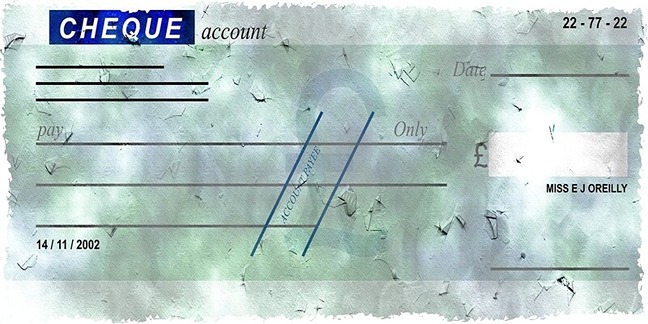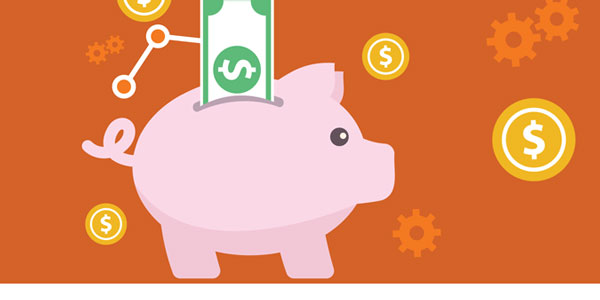Exceeding the credit limit on your card, a situation known as an over-limit, can have several immediate and long-term effects. While some might assume that transactions would simply be declined, the reality can be more complex and potentially damaging to your financial health. This article aims to explore the consequences of going over your credit card limit, to provide a comprehensive understanding of the repercussions and how best to avoid them.
Consequences of Exceeding Your Credit Card Limit
When you exceed your credit card limit, the first immediate consequence is that any transactions above the limit will be declined. This can be extremely inconvenient if you are trying to make a purchase or payment at that moment, but it is also a sign that you have reached a critical point in your credit usage.
There are also long-term effects of going over your credit card limit that can have a more significant impact on your financial well-being. These include:
- Over-limit fees: Many credit card companies charge a fee for going over your credit limit. This can range from $25 to $35 or more, and it will be added to your balance, increasing the amount you owe.
- Higher interest rates: When you exceed your credit limit, it can trigger a penalty APR, which is a higher interest rate applied to your balance. This means you will end up paying more in interest on your outstanding balance, making it harder to pay off.
- Damage to credit score: Exceeding your credit limit can also negatively impact your credit score. This is because one of the factors that determine your credit score is your credit utilization ratio, which is the amount of credit you are using compared to your total available credit. Going over your limit can significantly increase this ratio and lower your credit score.
- Possible account closure: Some credit card companies may choose to close your account if you consistently go over your credit limit. This can have a negative effect on your credit score as it reduces the overall age of your credit accounts and can also limit your access to credit in the future.
How to Avoid Going Over Your Credit Card Limit?
 one of the best ways to prevent hitting or exceeding your credit card limit is by incorporating strategic and responsible financial habits. Here are some practical tips to help you maintain a balance that's well within your credit limit:
one of the best ways to prevent hitting or exceeding your credit card limit is by incorporating strategic and responsible financial habits. Here are some practical tips to help you maintain a balance that's well within your credit limit:
Regularly Monitor
This is the most direct and effective way to keep your spending in check. With today's digital banking, it's easy to keep track of your balance and transactions in real-time. Set a reminder to check your balance once a week or even daily if you're a frequent card user. Some banks also offer automatic alerts when your balance approaches the credit limit.
Set a Personal Spending Limit
Consider setting a personal spending limit that is below the credit card limit. This creates a buffer zone and reduces the risk of exceeding the limit. It also allows for some flexibility in case of emergencies.
Make Frequent Payments
If you're a heavy credit card user, making multiple payments within a billing cycle can help keep your balance low. This not only prevents you from going over your limit but can also reduce your credit utilization ratio, improving your credit score.
Request a Credit Limit Increase
If your income has increased since you got your card, or if you've maintained a good payment history, your card issuer might be willing to increase your credit limit. While this does give you more purchasing power, remember to use this increased limit responsibly.
Understand Your Billing Cycle
Being aware of your billing cycle can help you plan your major purchases and payments. If you have a large purchase planned, timing it right after your billing cycle starts gives you more time to pay it off before interest kicks in.
Keep Your Balance Low
A good rule of thumb is to keep your balance below 30% of your credit limit most of the time. Not only does it leave room for unexpected expenses, but it's also beneficial for your credit utilization ratio and your credit score.
Use a Different Payment Method
If a major purchase is likely to push you over your limit, consider using a different payment method such as cash or debit. Alternatively, you might want to use a different credit card, split the payment across multiple cards, or even take out a small personal loan with a lower interest rate.
Dealing with Consequences
If you find yourself having overshot your credit limit, it's crucial to regain control over your finances and mitigate the potential damages. The consequences of surpassing your credit limit can be severe and long-lasting, hence it is important to promptly address the issue and take active steps towards rectification.
Step 1:
To pay down your balance as quickly as possible. Try to make a payment that at least brings your balance back under the credit limit. If you can afford to, paying off the entire balance would be even better as it eliminates the risk of incurring further fees and saves on interest. During this period, it's advisable to curtail your credit card usage to prevent the balance from growing.
Step 2:
You should contact your credit card issuer. If this is your first time going over your limit, it's possible that the bank might be willing to waive the over-limit fee. It's also worth discussing any changes to your interest rate. If the penalty APR has been triggered, ask if it can be reduced after you've made regular on-time payments for a certain period. Open communication with your credit card provider is key in this process.
Step 3:
Consider seeking advice from a credit counselling agency. They can provide valuable guidance on managing your finances, reducing debt, and improving your credit score. They might also be able to provide resources for more comprehensive financial education to help prevent similar situations in the future. Remember, it's crucial to address the issue head-on and take proactive steps to resolve it, rather than ignoring it and allowing the situation to exacerbate.
Conclusion:
Awareness, discipline, and strategic financial planning are the cornerstones to avoid overshooting your credit card limit. Regular monitoring of your credit card balance, setting a personal spending limit, making frequent payments, understanding your billing cycle, and having a diversified payment method can help maintain a healthy credit utilization ratio. In case of overshooting the limit, prompt actions like bringing your balance back under the limit, communicating with your credit card provider, and seeking advice from a credit counselling agency can mitigate the consequences. Cultivating these habits can aid in ensuring a good credit score and a stress-free financial future.










